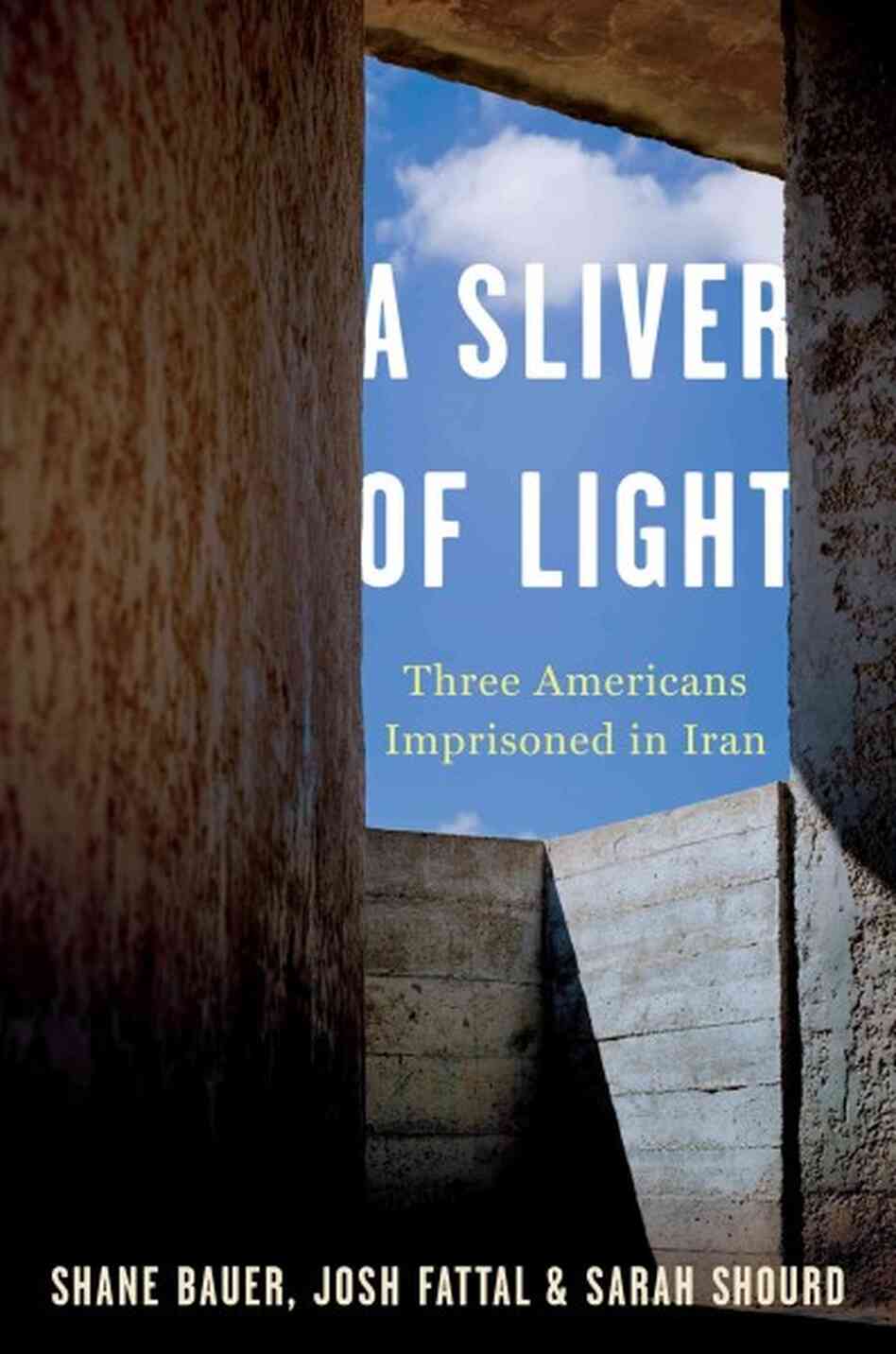Three Americans – Shane Bauer, Joshua Fattal and Sarah Shourd – were visiting the Kurdish region of Iraq in 2009 when they decided to go for a hike. Locals directed them to a hilly area and soon the Americans headed up a trail.
As they neared a ridge, the Americans spotted an isolated stone building with a soldier standing next to it. The soldier waved to them to come over. They did. And just like that, Bauer, Fattal and Shourd unknowingly crossed the border and become prisoners of Iran.
Shourd would be imprisoned for the next 13 months; Bauer and Fattal for more than two years.
In "A Sliver of Light," the three hikers tell the story of their capture and imprisonment, which drew international attention. The authors describe the mental wear and tear of their captivity, their nuanced relationship with an array of interrogators and guards, and how they eventually found subtle ways to resist their captors.
While the Americans are never physically tortured during their
captitivity, they emphasize that the long imprisonment eats at them psychically . Shourd, particularly, is affected by a long period of solitary confinement. "I talk to myself, eat my food
with my hands. Like an animal, I spend hours crouched by the slot at the
bottom of my door listening for sounds."
Still, one of the more surprising elements of their confinement is how far it is from a "Midnight Express"-style prison hellhole. The Americans
are fed adequately and eventually are able to
"order" a wide variety of foods. They have hot showers. They get books and, one time, a birthday cake. They eventually get
TVs, a DVD player and a refrigerator in their cells. To celebrate Bauer's birthday in 2011, the guards take him and Fattal out for a
picnic where they have pizza and ice cream.
As a factual accounting of the Americans' experience, "A Sliver of Light" does a fine job. But in terms of emotional engagement, it falls short.
In this kind of book you want to root for the captives, but in this case, Bauer, Fattal and Shourd are just not that likeable. In fact – based on their own words – I often found them annoying.
They are incredibly slow to realize that they are political prisoners, and in the early going they naively believe that if they cooperate completely with their captors they will be set free.
During one interrogation, Bauer is so eager to please the Iranian across the table that he wonders, "Are we bonding? Is he interested in me? Does he feel guilty for partaking in my captivity?"
Even though the Iranians repeatedly lie to the Americans, the gullible Shourd trusts each new interrogator. At one point, she says, "I truly believe he wants to help me, to speed up this process and play his part in getting me out of here." This "kind" interrogator orders her to keep her blindfold on.
It is over a year before Shourd has an epiphany: "They knew from the first day that we weren't spies and that we did not willingly cross the border, yet they decided to hold us anyway."
The Iranians interview the Americans for long periods, clearly poking around for information they can use to frame them as spies. But the American don't resist in the slightest, failing to recognize that they have leverage to ask for a quid pro quo – some short time for them to be together, for example, or the opportunity to make a phone call.
It take a whole year before the Americans realize they do have some power to get better treatment, but it requires them to resist. "Defiance gets results," Fattal discovers.
On one night early in their confinement, Bauer is able to sneak into Shourd's cell and the dating couple have sex. Hey, sex is good, but since this is their first time together in a long time, wouldn't this also be a great time to discuss their situation and develop a strategy for the interrogations? Maybe they could try a hunger strike, a tactic they later find quite effective. Nope – after sex, Bauer just leaves and goes back to his cell.
Worse, perhaps, is that the Americans repeatedly come off as smug and self-righteous. You might think it would be hard for people in their situation to seem smug, but somehow these three do it.
They lecture the reader on politics, American foreign policy and even the institution of marriage. "Why trap yourself in an institution that is so feeble, that so often crumbles and wreck lives," Bauer wonders. "Why participate in the state incentivization of one particular type of relationship: one man and one woman." (Bauer and Shourd are now married.)
When Fattal and Bauer decide to divide the food in their cell between them, they don't use the word "divide." They call it "privatizing."
And after they're all released, they refuse to help the FBI in a investigation into another American missing in Iran.
If you like these sort of stories, check out the National Geographic Channel's series, "Locked Up Abroad."
An excellent book about someone held hostage in the Middle East is "Buried Alive" by Roy Hallums. He didn't have hot showers and his captors never took him out for pizza.
---
(Please support this blog by clicking on an ad, or by donating via
the Paypal button below.)

No comments:
Post a Comment